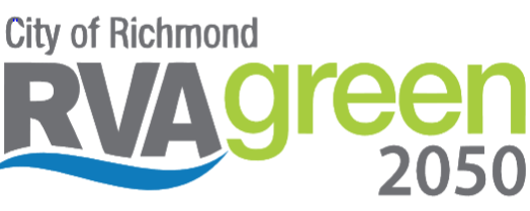Engagement & Communication
What we heard: The voices of Black and African American, Hispanic and Latino, and lower income residents are underrepresented in public processes for many reasons: time and capacity conflicts with traditional strategies; flawed communication and language; and, lack of trust and burnout from participating in past efforts that have seen limited results.
What does this look like in Richmond? Climate change affects some members of our community more than others. Due to historic and institutional racism, people of color are more likely to live in more marginal and exposed areas that are more susceptible to climate impacts. These community members are further marginalized in traditional public planning processes.
The Office of Sustainability developed the RVAgreen 2050 Climate Equity Index to identify the communities in Richmond that are on the frontlines of crises such as climate change and are purposefully reaching out to these communities to engage them in our process.
Actions we’re taking: We are prioritizing engagement efforts to focus on and uplift marginalized voices. RVAgreen 2050 community engagement is guided by two principles:
One size does not fit all: Our targeted universal strategy is inclusive of the needs of both dominant and marginalized groups but pays particular attention to the situation of the marginalized group.
Center people in the process: Our people-centered approach begins with the identification of issues faced on a personal level and explores creative solutions that will best suit an individual’s needs. We are using the Virginia Community Voice Blueprint to guide our efforts to engage and equip Richmonders in this process, particularly communities on the frontlines of climate change.
Source: Virginia Community Voice
What you can do:
Read the Virginia Community Voice Blueprint
Find your City Council district or see if there is a civic group in your neighborhood
Become an RVAgreen 2050 Ambassador
Sign up for updates on RVAgreen 2050 to stay informed of additional opportunities to participate
 RVAgreen 2050 will build on the foundation set by Richmond 300, the city’s master planning process that engaged thousands of Richmonders in identifying objectives such as these supporting better engagement and communication:
RVAgreen 2050 will build on the foundation set by Richmond 300, the city’s master planning process that engaged thousands of Richmonders in identifying objectives such as these supporting better engagement and communication: 3.3: Broaden the constituency for historic preservation by more equally representing, preserving, and sharing the sites related to traditionally underrepresented groups
5.1: Increase public knowledge of planning processes and continuously engage civic associations, special interest groups, and traditionally underrepresented groups in the planning process
13.1 Create new and support existing cooperative relationships between institutions and neighborhoods
14.7 Increase city-wide awareness of the importance of integrating affordable housing into every residential neighborhood so every household has housing choices throughout the City



